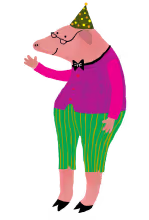
Mine Conkbayir
Award Winning Author, Lecturer And Trainer
Mine is an award-winning author, lecturer and trainer. She has worked in the field of early childhood education and care for over 17 years. Mine is the winner of the Nursery Management Today (NMT) Top 5 Most Inspirational People in Childcare Award.
Founder of the Cache Endorsed Learning Programme, ‘Applying Neuroscience to Early Intervention.’ Mine is currently collaborating with the Metropolitan police force, undertaking independent research which explores the connection adverse childhood experiences (ACE’s) and criminality.
She is also undertaking a PhD in early childhood education and neuroscience to develop her work in the complex and challenging subject of infant brain development. Her key objective is to bridge the gap between neuroscience and early years discourse and practice. She hopes that her research will provide the necessary evidence to seek solutions to this persistent issue, with the ultimate goal of enhancing provision for babies, children and young adults.
Key takeaways:
- Monet’s Expertise: Monet, an award-winning lecturer, trainer, and author, recognized by the Nursery World Awards and named among the top five inspirational childcare figures, founded a CACHE-endorsed online learning program and advocates for neuroscience-informed early years education.
- Neuroscience Advocacy: Monet emphasizes integrating neuroscience into early years practice, shifting from confusion about the field to understanding its relevance for practitioners and parents to support healthy brain development.
- Brain Development: A baby’s brain has ~86 billion neurons at birth, with synaptic connections shaped by experiences from birth to age five, a critical period where positive caregiving fosters learning, while toxic stress (e.g., neglect, abuse) wires the brain for stress, leading to behavioral challenges.
- Brain in the Palm Model: Using Dan Siegel’s model, Monet explains the “downstairs brain” (limbic system, including the amygdala for emotions) and “upstairs brain” (prefrontal cortex for rational thinking, developing until age 26). Stress causes children to “flip their lid,” requiring co-regulation to restore calm.
- Critique of Practices: Monet criticizes timeouts, exclusions, and academic-focused policies (e.g., phonics over mental wellbeing), which neglect the “downstairs brain” and lead to mislabeling children as problematic, increasing exclusions, especially for those with special needs.
- Practical Solutions: She advocates for child-led, creative approaches (like Tales Toolkit), mindfulness to reduce cortisol, nurturing emotional vocabulary, and creating safe havens to support self-regulation and resilience, countering toxic stress.
- Policy and Training Reform: Monet urges Ofsted and the DfE to embed neuroscience in policies and qualifications, promoting her online program to train “neuroscience champions” who drive brain-based, child-centered changes in settings.
Related Webinars

We'd love your feedback!
Did you love it or hate it? And what ideas have you got for upcoming webinars - big names you'd love to see or topics you'd like covered?

.avif)







